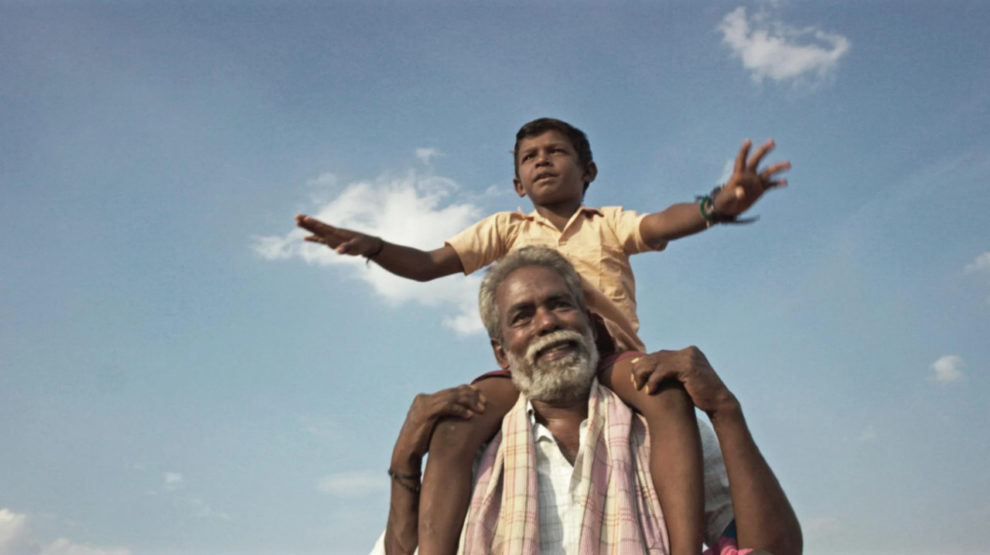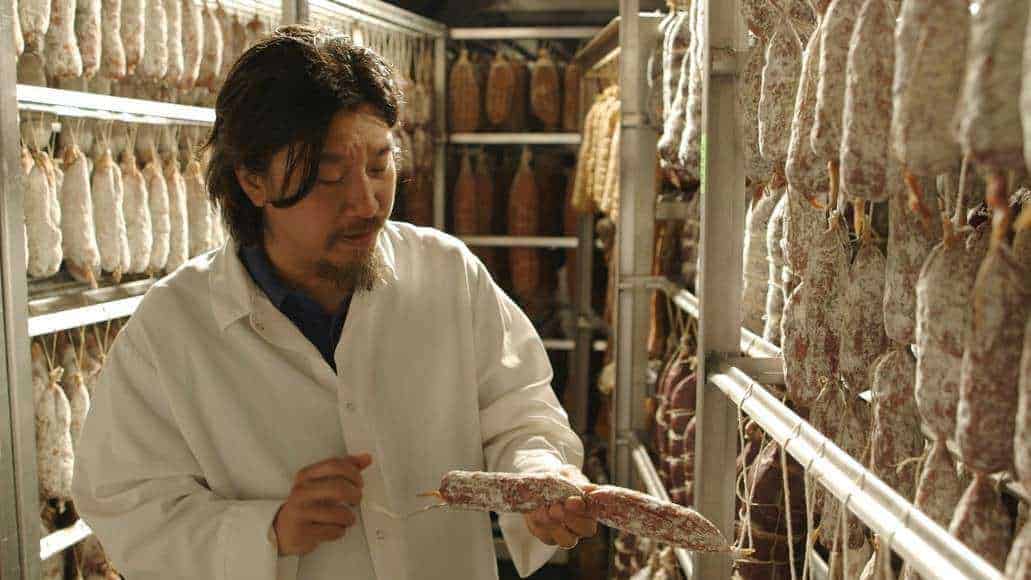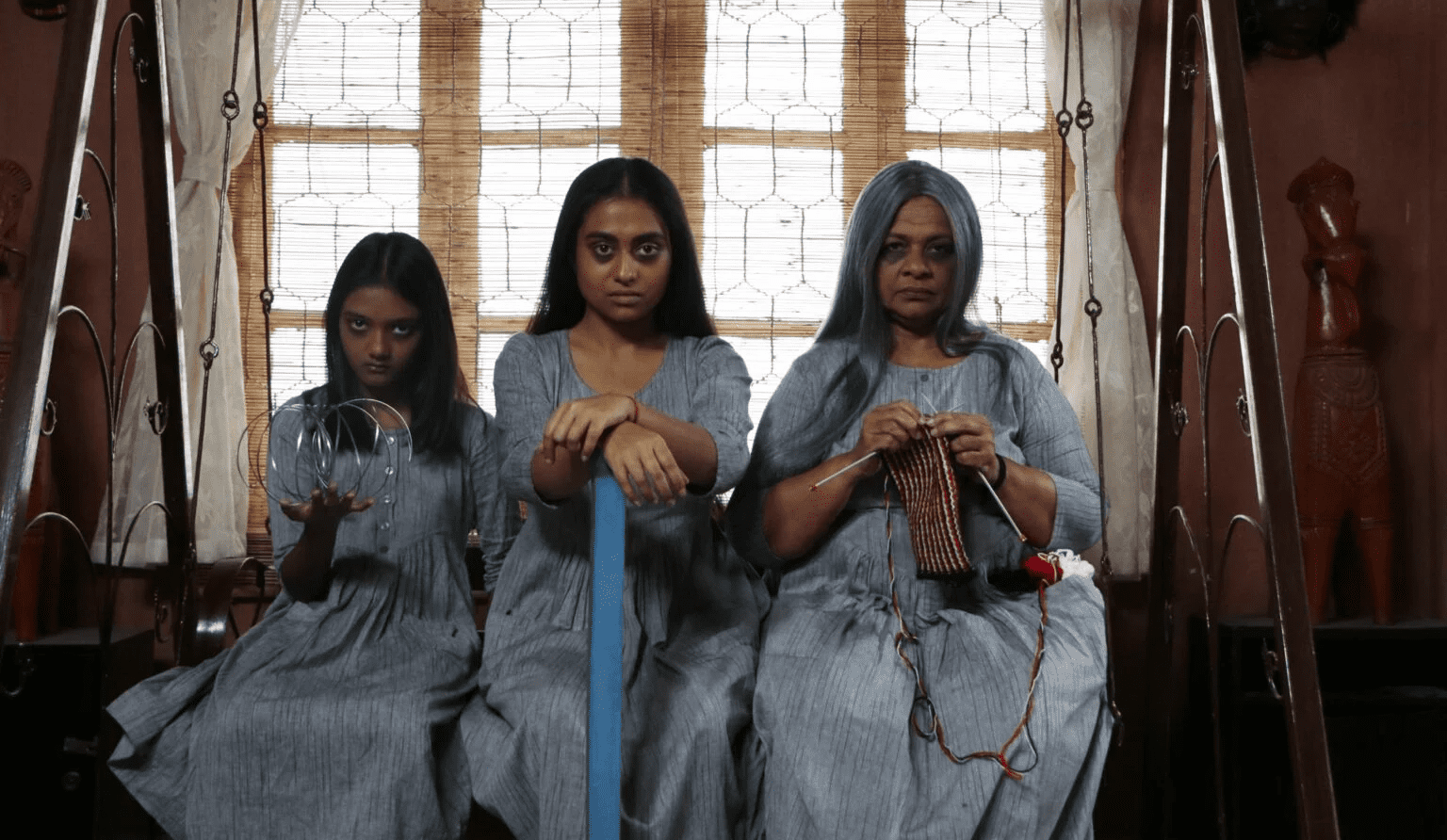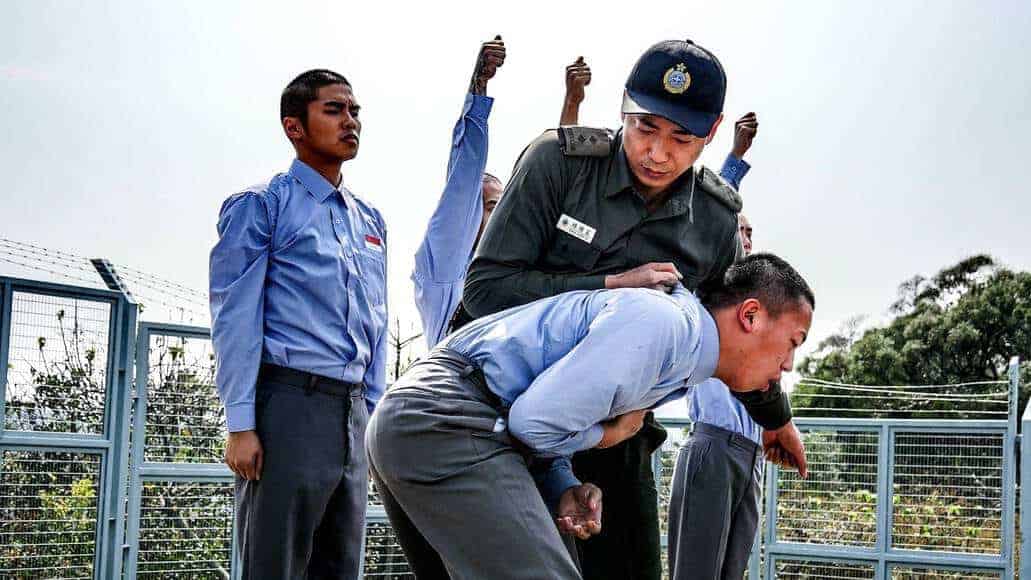The Indian Film Festival of Los Angeles (IFFLA) offers the opportunity to discover the newest films from India. It shows how this specific film culture delights with indie films about personal destines and social issues. Among the feature films of this year's program is also the debut by Tamil director Thamizh. His social drama resembles in many ways to “Pebbles” by P. S. Vinothraj the winner of this year's International Film Festival Rotterdam.
“Seththumaan (Pig)“ is screening at Indian Film Festival of Los Angeles
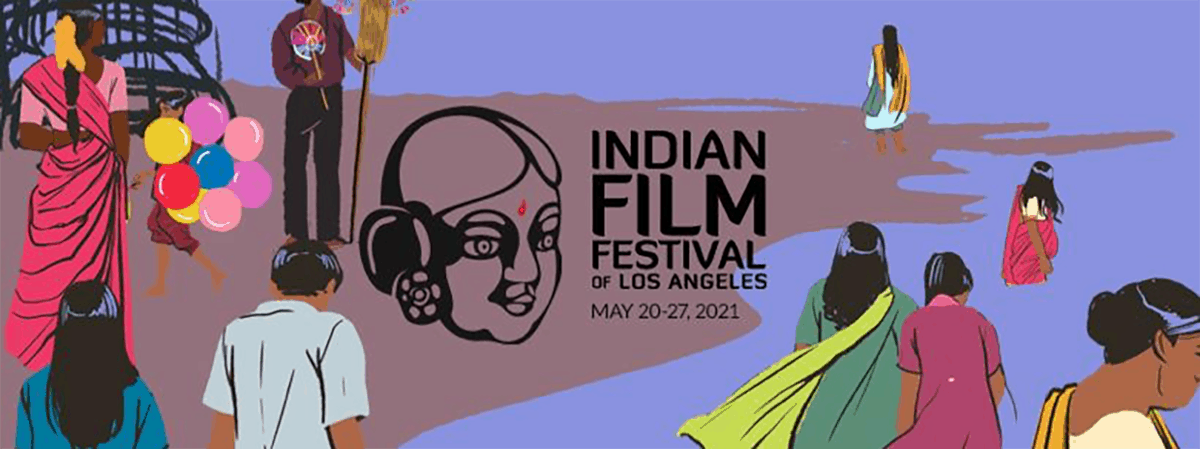
“Seththumaan” is set in a similar region, in the South of India. It is hot, the landscape is sandy and dry. The protagonist is an elderly man from a low caste. After the brutal death of his son and daughter-in-law he provides for the upbringing of his grandson. They both live on very modest circumstances, but Poochi does everything in order for the child to have a better future. However, his income from making baskets is not enough. This is why he works also as a kind of footman for a landlord Vellaiyan.
Vellaiyan is a nice guy, but very irascible. He gets into fights easily and has often fixations he won't reconsider. One of this ideas is to roast and eat a piece of pig meat. Unfortunately, pig meat is considered not worthy for the upper castes to which he belongs. His wife is furious at him and yells threatens constantly she will kick him out of the house if he doesn't stop his nonsense. But nothing can stop him and he hires Poochi to find the right animal for the purpose.
Not very much happens in the film. A lot is rhetoric. Especially the landlord is a master in persuading others. He makes a fuss about everything. For example he is fighting with his cousin because the latter cut a few branches of a tree the two own in common. Same goes with the pig. He forces Poochi to go from farm to farm to find the most neat of all pigs. Since he has a bad conscience of eating the meat alone, he convinces several others to take a share.
The main subject of the movie are traditions and how they influence social life. The relationships between the castes is one of the main topics. Poochi is servile because he wants a better life for his grandson. Vellaiyan knows exactly that he can ask everything he wants from him. Other then Poochi the pig breeder, who is in the same social class as Poochi, acts much more self-confident. This contrast shows a certain shift towards a more modern society, which however is still of little impact.
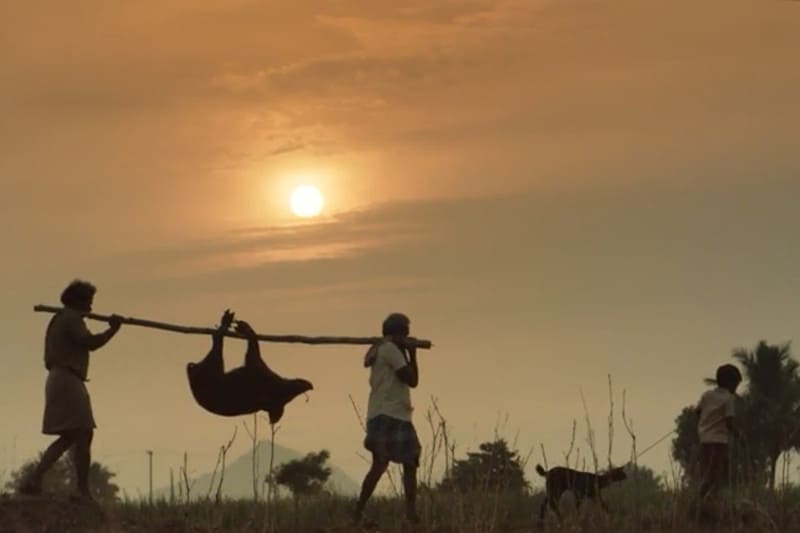
Also related to the differences between the castes is the topic of meat. Higher castes don't consume meat at all. Pig meat is considered the lowest of all meats. That Vellaiyan insists on eating it, must seem a decadence. In the film, it is treated like a sort of fetish. Only the men join the feast. But it has to happen somewhere isolated. The joy over the achievement is then unfortunately of a short duration. The satisfaction of the cravings of the rich ones, will be the downfall of the poor ones.
Director Thamizh depicts a society that is changing, but only slowly. The opportunities for the poor in climbing the social ladder seem still very limited. His film is, at the same time, very dramatic and funny. The humor is very sensitive and fine. It feeds on the characters and the situation. Excellent are the conversations between the teacher, Poochi and the pig breeder. Same goes for the interaction between Vellaiyan and his wife or the scene at the village council. It's from the very beginning that the movie sets a high standard concerning rhythm and a precise observation.
“Seththumaan” is a jewel of a film. On a formal level it convinces with a fast pace, but has a few insecurities in the camera work. The hand camera aesthetic doesn't fit this, already very turbulent content. But then, you will easily forgive this little immaturity, because of the outstanding dialogues and cast. Most of the actors are not very well known. Still not only Manickam as Poochi delivers an authentic and convincing performance, but also everyone else.


